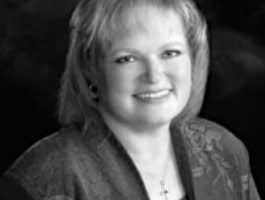
Denial
All of us will someday face death - our own as well as those we love. Today on the broadcast, Deborah Howard, RN and Certified Hospice Nurse, tells how a person can do more harm than good by refusing to acknowledge how ill a loved one really is.
Show Notes
About the Host
About the Guest
-
All of us will someday face death - our own as well as those we love. Today on the broadcast, Deborah Howard, RN and Certified Hospice Nurse, tells how a person can do more harm than good by refusing to acknowledge how ill a loved one really is.
-
Dave and Ann Wilson
Dave and Ann Wilson are hosts of FamilyLife Today®, FamilyLife’s nationally-syndicated radio program. Dave and Ann have been married for more than 38 years and have spent the last 33 teaching and mentoring couples and parents across the country. They have been featured speakers at FamilyLife’s Weekend to Remember® marriage getaway since 1993 and have also hosted their own marriage conferences across the country. Cofounders of Kensington Church—a national, multicampus church that hosts more than 14,000 visitors every weekend—the Wilsons are the creative force behind DVD teaching series Rock Your Marriage and The Survival Guide To Parenting, as well as authors of the recently released book Vertical Marriage (Zondervan, 2019). Dave is a graduate of the International School of Theology, where he received a Master of Divinity degree. A Ball State University Hall of Fame quarterback, Dave served the Detroit Lions as chaplain for 33 years. Ann attended the University of Kentucky. She has been active alongside Dave in ministry as a speaker, writer, small-group leader, and mentor to countless wives of professional athletes. The Wilsons live in the Detroit area. They have three grown sons, CJ, Austin, and Cody, three daughters-in-law, and a growing number of grandchildren.
-

Deborah Howard
Deborah Howard, RN, CHPN (Certified Hospice and Palliative Nurse), and her husband, Theron, live near Little Rock, Arkansas, where she divides her time between writing and working as a hospice nurse.
Hear how a person can do more harm than good by refusing to acknowledge how ill a loved one really is.
Bob: The Bible speaks to a subject that many of us don't like to think about – the subject of death and dying. Hospice nurse Deborah Howard says it's something we need to embrace.
Deborah: I'm constantly amazed by the attitudes that Christians have about death and dying – "Why is this happening to me?" "What did I do to deserve this?" And when you get down to the bottom line about denial, what you're actually denying is the providence of God. God controls all things in the life of His children, and to deny His providence is a very dangerous place for us to be.
Bob: This is FamilyLife Today for Monday, February 21st. Our host is the president of FamilyLife, Dennis Rainey, and I'm Bob Lepine. We will visit together the house of mourning today and see if we can experience there the goodness of God.
And welcome to FamilyLife Today, thanks for joining us on the Monday edition. Dennis?
Dennis: Bob, as you'll recall, my mom got her graduation certificate back in March of 2003. She graduated from earth and from life as we all see it to something that is beyond description. She moved on to heaven and passed away. But in the process of her dying, which took about two years – she died of Alzheimer's disease and going through that process was really fascinating for me, because I had not been that close to death on an ongoing basis, moving toward it a step at a time, very slowly.
Bob: Your father had died years ago, but he died suddenly.
Dennis: He died in 10 minutes, there were no goodbyes. I just got the phone call saying Dad had died of a massive heart attack, and he was gone. But with Mom, her death literally took over two years, and as we went through that process I ran across a quote by Billy Graham that I think is pertinent here. He said this – "If we're in a battle with this enemy called Death, I believe we should learn about it in order to know how to confront the dying experience."
Now, I really agree with that, but he goes on to say this – "We need to know how to face that enemy on our behalf and how to deal with the inevitable death of loved ones and friends." And you'll recall, Bob, as I came back from my mom's funeral and memorial service, I came back with a burden just about the whole dying process that we all needed to be better equipped both biblically, emotionally, and factually to better understand this process of dying.
And I said I want to find someone who works in hospice that we can talk to about this subject and help our listening audience know better how to cope with death. And so you actually go to church with our guest, Deborah Howard, who joins us on FamilyLife Today. Deborah, welcome to the broadcast.
Deborah: Thank you, Dennis, it's a pleasure to be here.
Dennis: Now, I understand you actually sit under the teaching of a great Bible scholar at the church you attend.
Deborah: He is very awesome and, yes, he is a tremendous Bible scholar.
Bob: She's talking about our pastor and, I would agree, he is, he's a great Bible scholar.
Dennis: Actually, it's your Sunday school class that she goes to, don't give me that baloney – what are you teaching, Bob?
Bob: Well, we've been going through Isaiah, haven't we?
Deborah: Yes, we have.
Bob: And it's taken us a little while, because Isaiah had a lot to say, but it's been a fun study to go through.
Dennis: Well, it was fun, I thought, when Bob came in and said, "I think I have the person for us to talk to on FamilyLife Today about the whole subject of death and dying." He said that Deborah had written a book or was in the process at that time, I guess, of writing a book called "Sunsets - Reflections for Life's Final Journey," and it's been your ministry, really, as a hospice nurse and caregiver over the past – nearly a decade – that has enabled you to write this book. And I asked you earlier, before we came into the studio, how many you had watched die.
Deborah: My answer was, conservatively speaking, I would say it's numbered in the hundreds – close to 1,000, maybe. But each one of them has some similarities, and each one of them is different.
Dennis: When my mom died, I realized I had really not been that close to a person who actually walked up to death's door and then stepped through it. I had no experience. Is that true of most people who come to this subject?
Deborah: Yes, and most people have an aversion to that subject. You even mention death and dying to them, and it's like they start backing up. They don't want to really address the issues until they have to.
Dennis: They actually move into something you talk about in your book – they move toward denial.
Deborah: Right. Denial is one of the major obstacles that I run into when dealing with family members who are losing a loved one to death.
Bob: Is it the person who is dying who is in denial? Is it the family and friends around? Is it all of us who kind of lapse into denial?
Deborah: It's human nature to first – when we are confronted with something that's shocking to our system, shocking to our emotions, we want to say, "No, it's not true." That may be our first impulse. But how long we stay in that state is a totally different matter. Some people will, very quickly, move into a place of reality where they are able to actually constructively deal with the issues and move on. And others are trapped in a state of denial, and that's one of the responsibilities that the hospice team has – is to help people move beyond that stage so that they can actually be a part of the solution and not a part of the problem.
Bob: You mean if they stay in denial, they're going to be part of the problem?
Deborah: Absolutely.
Bob: Why?
Deborah: They keep the process from moving forward by refusing to look at the reality of the circumstances, they are actually holding people back from the benefits that they could actually experience in the dying process.
Dennis: So you're saying if we're going to face death, we can't deny the fact that it's coming. We have to get on with admitting this death is going to become a reality. We need to process this. We need to help our loved one process it, and yet if we move into denial we short-circuit the whole process.
Deborah: That's right. And many times you're keeping your loved one from receiving the benefits that they could have. I've seen some people, for instance, who have a loved one who has been told that they are dying, and their doctor has made a recommendation for hospice. When I go talk to them about hospice, they tell me they do not need it yet; they are not to that place yet, when, obviously, after an examination of the patient, I know that patient meets our criteria for hospice, and yet they're denied the services because the family is not ready to accept it yet.
Bob: But you understand how, for a family member to say, "Okay, I'm ready for hospice," it feels like you're saying, "We're giving up on fighting any disease. We're giving up hope that life might still be a possibility here."
Deborah: Right, but there is a real difference between giving up and letting go, and I think that difference is that with one it's like a defeat and with the other it's like a cooperation. You cooperate with what's happening with what God has brought into your life, and you let go and trust your loved one to God for those who are Christians. And you asked a question a while ago about whether it's mostly the family members or the patients themselves, and what I've found is that the patient usually will come to grips with what's happening with them much sooner than the family members. The family members will hang back and say, "No, no, no, that's not the case."
In several cases, I have been visiting a patient, and the patient says to me, "I know I'm not going to be around much longer. I know that I'm going to die soon." And a well-meaning family member and, for some reason, it's usually a woman, will stand up and say, "Now, don't you talk like that. I don't want to hear anything else like that. We have to be positive. Now, that's not going to happen, and we're going to keep a positive frame of mind." And many times that patient will look at me, I will look at him, we will make eye contact, and he knows that I know, and I think he finds comfort in that. But, in most cases, they are too weak to argue, so they just let it go. And, to me, that family member has just missed a very valuable opportunity to share an intimate time in that patient's life.
Bob: So getting past the hurdle of denial actually makes the rest of the journey toward death, if that's where you're ultimately going, it makes that journey a more comfortable journey for everybody.
Deborah: In most cases, I would say that is true.
Dennis: I've never quite thought of denial in this way, but just hearing you describe it, for me to be in denial, for instance, about my mom's process of dying, is selfish. I'm keeping a relationship from her to enter into a process of something she's experiencing that she doesn't need to experience alone. She needs people who love her, who have got a context for her life, to go through that with her and, you know, as much as I could talk to my mom, because she had Alzheimer's disease, I would interact with her about this, and I said, "You know, Mom, you don't really have anything left to do." She kept saying, "What do I need to do?" She was always a doer. And I said, "Mom, you really don't have anything left to do. You just need to feel free to go home. You need to feel free to go on home and go to heaven. It's okay."
Deborah: That's a great gift you gave her. In the hospice business, we call that "giving permission." And there are a lot of families who are never able to come to that point. That is a very important point to reach, not only for the patient, because you've just freed them, you've just told them it's okay. If you need to go, you go – but also for the families, because it helps them to find the acceptance that they need to embrace the death and not fight against it.
Dennis: Deborah, one of the things you talk about in your book that I really liked was you had a number of real-life situations that you walked into.
Deborah: Right, the case studies.
Dennis: The case studies. Share one illustration of what we're talking about here of just how you cared for a person and walked them through the process and a little bit of their story of how they died.
Bob: Is there a particular case study that comes to mind?
Deborah: Yes. Actually, these are two of my dear friends now, but we received a call from a man saying that his mother was dying and that a doctor had recommended hospice to him, and he wanted somebody to come and talk to them about it. I went to them, and I was so surprised when I got there, because these kids who were taking care of their mother, it turns out to be in their late 70s. The mother was in her late 90s. And the brother and sister were living in her house, and they were taking care of her. All of their efforts were devoted to taking care of this woman, and they were both exhausted, absolutely exhausted. If I ever saw anybody who needed hospice, it was these two precious people.
I sat down with them, and I said to the man, "What do you know about hospice?" And he raised up and, with a very defiant look on his face, he said, "I know enough that the very word is objectionable to me. We are not at that place, and I am only doing this at the recommendation of my doctor." The sister got up and stormed out of the room in tears. She could not even discuss the topic of hospice. I knew that he was not where he needed to be to embrace the hospice philosophy yet. He was not at a place where he was ready to let his mother go, and to accept the help that we had to offer.
So I sort of surprised him. I said to him, "You know, I don't think you and your sister are really appropriate for the hospice program right now. I think your mother is appropriate for hospice care, but I don't think that you and your sister are where you need to be in order to embrace the care that we could provide for her. But let me just tell you a little bit about hospice, because I think the day will come when you will be ready for that."
Well, you could just see the tension go out of his shoulders as he relaxed and said, "Well, okay, for future reference, I'll go ahead and find out about it." So I just told him about hospice, and I didn't, at all, try to get him to sign any papers or make any decisions. I just said, "I know that down the road you're going to be ready for this information, and I want you to make a decision based on knowledge – true, accurate knowledge of the hospice program," because he was obviously suffering under preconceived ideas that were not based on truth.
So I just left him that day, and I gave him a hug when I left, and I said, "You call us when you're ready." And I left, and I called the office, and I told them there's no way these people are ready for hospice now. I said, "This lady really needs it, but the family is just not appropriate." So in about an hour I got a phone call from the office. They said that the man had called back and that already he had decided that he was ready; that hospice was right for them.
Dennis: You're getting emotional right now. Why is that?
Deborah: The memory is very sweet. I know, especially now that I know him, as well, I know how much it took for him to make that phone call, and so I was so proud of him, I was just so proud of him for responding so quickly, and he realized that he was denying his mother help because of his own attitudes. And he called me back, and I went out there. We had a long talk, and I admitted her as a patient, and we had a short hospice association, but I would start calling them "the kids," even though they were in their late 70s, because I was expecting two young people taking care of their mother. And even, to this day, I'll call them, "I’m going to go over and see the kids," and we've maintained a friendship over the years since then. We still write. We still see each other, we call each other, and I consider them part of my extended family now.
But that was one case where, fortunately, he did not let his preconceived notions interfere with the care that his mother eventually got.
Bob: In this case, Dennis, I think it was the education, it was knowing a little bit more about what hospice is and what was ahead, and that helped get him past some of the denial. Sometimes the denial is just because we're afraid of the unknown.
Deborah: And when you get down to the bottom line about denial, what you're actually denying is the providence of God, and God controls all things in the life of His children, and to deny His providence is a very dangerous place for us to be. In fact, I'm constantly amazed by the attitudes that Christians have about death and dying. Some of them act as though they should be somehow exempt from these things, and they're totally surprised by it when it happens.
I hear, "Why is this happening to me?" "What did I do to deserve this?" As if by being a Christian you are immune from those kinds of tragedies in your life. But, really, we're told all throughout the Scriptures that God arranges our lives; that He determines our days. We are told that He is our master designer, and to deny His sovereign control over our lives is unwise and can get into the area of sinful.
Bob: You and I were at a funeral recently for our friend, 43 years old, he had died – left a widow and five children. His mother was at the funeral service, and her testimony – "God is good."
Dennis: Right there, as we stood beside a silvery casket, she was saying, "God is good all the time."
Bob: You look at the circumstances, and you would say, "These don't look like good God circumstances," because, in our view of things, we go, "Where is the good in this?" But she, by faith, was accepting the providence of God that you're talking about.
Dennis: Well, either God's in charge 100 percent or He's not in charge at all.
Deborah: That's right.
Dennis: And if you try to go to a funeral or approach death with the concept that God's not in charge and therefore is not God, I'm going to tell you, that creates a much bigger problem and a dilemma as you think about giving someone who is in the process of dying peace and comfort. If God is, indeed, who He claims to be – and He is – then the comfort of His sovereign control can bring peace to those who are in the process of dying.
Deborah: One familiar verse in Ecclesiastes says, "There is a time that we are born, and there is a time to die," and all throughout the Scriptures we are told that God controls these things; that our deaths, our illness – these are not outside of God's control. One verse that I use a lot with my patients in counseling with them is found in Psalm 139. In verse 16 it says, "All the days ordained for me were written in Your book before one of them came to be." Now that, to me, says you die when you're supposed to die. You're not going to die – there's nothing the family can do to have the patient lives longer than that, or there's nothing that they can do that's going to shorten their life.
Bob: And it doesn't mean that there's not going to be sorrow or difficult circumstances or that we're not going to grieve the loss of a friend who goes beyond. We can acknowledge the goodness of God and still go through the catharsis of human emotion as we say goodbye to a friend and a loved one who has been a companion for years.
Dennis: Like you and I did recently with our friend, J.T. Walker. He passed over. He passed over from life as we see it and life as we know it here on this side of eternity through a door and a gate called "death," to an entirely different realm called "heaven," and the presence of God. And, you know, that hope that is brought to us by the person of Jesus Christ, who came to die for our sins so that we might pass through death, and it might only just be a sting. It's just a little prick. That, to me, is the hope of Christianity and of the Bible and is the hope that God offers to each person who will trust in Him and believe Him.
Bob: I think there are probably a lot of listeners who, like you, Dennis, have not had the direct experience. Maybe they've never seen someone die. Maybe they've never been a part of an extended process of watching somebody walk up to death's door. And a book like the one that Deborah has written is a roadmap, it's a guidebook that can help you if you're headed in that direction. If you know someone who is on that path – a friend, a loved on, this kind of book is going to be helpful to both the person who is on the journey himself and to those who are walking alongside that person on the path.
We've got copies of the book available in our FamilyLife Resource Center. The book is called "Sunsets - Reflections for Life's Final Journey," and you can get more information on our website at FamilyLife.com or you can call 1-800-F-as-in-family, L-as-in-life, and then the word TODAY to request a copy. If you go to the website, down at the bottom of the screen there will be a little button that says, "Go," and you can click on that button. It will take you right to the page where you can get more information about Deborah's book. You can order it online, if you'd like.
There's also information about another resource that our team has put together called "Encouragement for Broken-Hearted Homes." This is a book that you can pass on to someone who is going through a process of grieving – either before a loved one dies or after the death of a loved one. And if you were to order both books together we can send you at no additional cost either the CDs or the cassettes of our conversation this week with Deborah Howard.
Again, go to our website, FamilyLife.com to request these resources, or give us a call at 1-800-F-as-in-family, L-as-in-life, and then the word TODAY, and someone on our team can help you get these resources sent to you.
We received an e-mail from one of our Legacy Partners recently who wrote to say that her husband had just returned home recently after serving in Qatar for a year, and she said, "We are grateful to have Daddy home safe and sound, proud that he has served our country in this way," and it made me imagine the scene, in my own mind, of Daddy coming home after a year's worth of service overseas.
The readjustment can be a challenge for some married couples. Programs like FamilyLife Today are here to try to provide practical, biblical counsel during some of those difficult periods that all of us go through in our lives, and we appreciate this couple for standing with us as a Legacy Partner, helping to support this ministry each month, and we're happy to be able to provide, again, that kind of practical, biblical help to strengthen marriages and families day in and day out through this radio program and through all of the ministries of FamilyLife Today.
If you'd like to find out more about becoming a Legacy Partner, there's information on our website at FamilyLife.com, and let me say a word of thanks to all of you who are Legacy Partners or to those of you who donate as you can from time to time. We appreciate your financial support. We're listener-supported, and it's those contributions that keep FamilyLife Today on the air in this city and in cities all across the country. So we really appreciate you.
Well, tomorrow, we're going to hopefully dispel some of the myths that I think all of us have when it comes to this subject of hospice care or someone who is facing a terminal illness. We'll challenge some of that thinking on tomorrow's program. I hope you can be back with us for that.
I want to thank our engineer today, Keith Lynch, and our entire broadcast production team. On behalf of our host, Dennis Rainey, I'm Bob Lepine. We'll see you back tomorrow for another edition of FamilyLife Today.
FamilyLife Today is a production of FamilyLife of Little Rock, Arkansas, a ministry of Campus Crusade for Christ.
_______________________________________________________________
We are so happy to provide these transcripts to you. However, there is a cost to transcribe, create, and produce them for our website. If you’ve benefited from the broadcast transcripts, would you consider donating today to help defray the costs?
Copyright © FamilyLife. All rights reserved.





